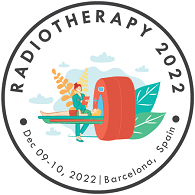Nuclear Medicine
Nuclear medicine imaging procedures are non-invasive and, with the exception of intravenous injections, are usually painless medical tests that help physicians diagnose and evaluate medical conditions. Nuclear medicine is a branch of medical imaging that uses small amounts of radioactive material to diagnose and determine the severity of or treat a variety of diseases, including many types of cancers, heart disease, gastrointestinal, endocrine, neurological disorders and other abnormalities within the body.
Nuclear medicine therapies include:
- Radioactive iodine (I-131) therapy used to treat some causes of hyperthyroidism and thyroid cancer
- Radioactive antibodies used to treat certain forms of lymphoma
- Radioactive phosphorus (P-32) used to treat certain blood disorders
- Radioactive materials used to treat painful tumor metastases to the bones
- I-131 MIBG used to treat adrenal gland tumors in adults and adrenal gland/nerve tissue tumors in children
Related Conference of Nuclear Medicine
Nuclear Medicine Conference Speakers
Recommended Sessions
- Advances in Medical Imaging and Diagnosis
- Adaptive radiotherapy
- Angiogenesis Inhibitors
- Biomarkers
- Cancer Biopsy
- Cancer Drug Resistance & Cancer Vaccine
- Cancer Genomics
- Cancer Screening, Diagnosis & Prevention
- Chemotherapy
- Hormone Therapy
- Image guided radiotherapy
- Immunotherapy
- Medical Imaging
- Neuro interventional radiology
- Nuclear Medicine
- Positron Emission Tomography and Computed Tomography (PET-CT) Scans
- Precision Medicine
- Proton Therapy
- Radiation Therapy
- Radioimmunotherapy (RIT)
- Radiopharmaceutical Chemistry
- Stem Cell Transplant
- Targeted cancer therapies
- Tumor Microenvironment

